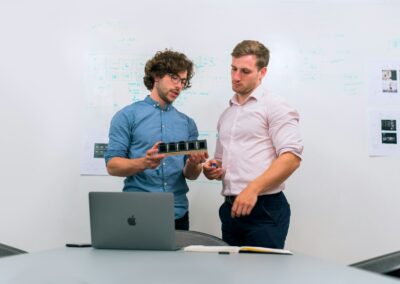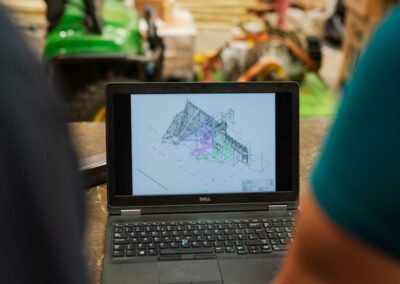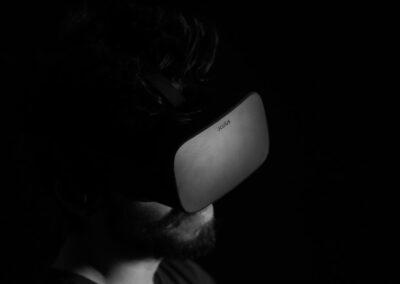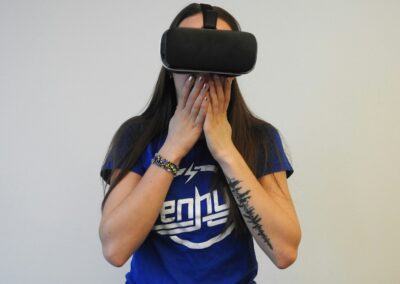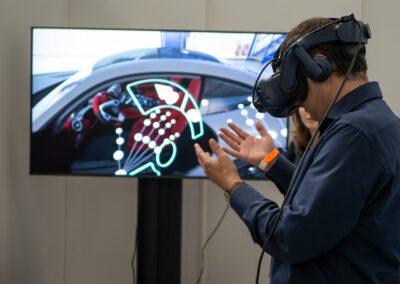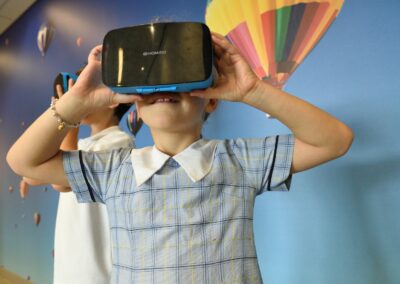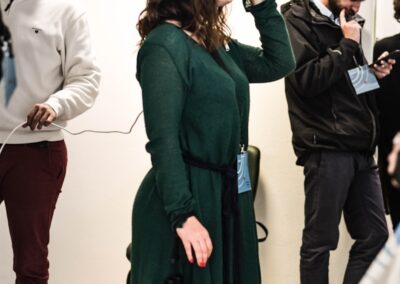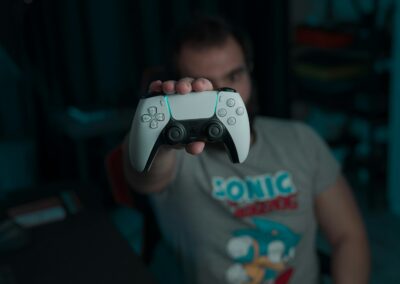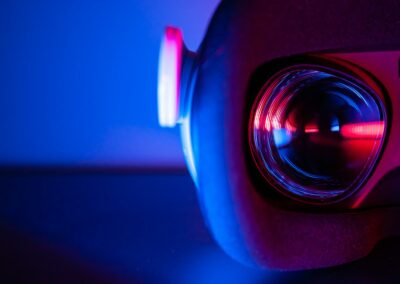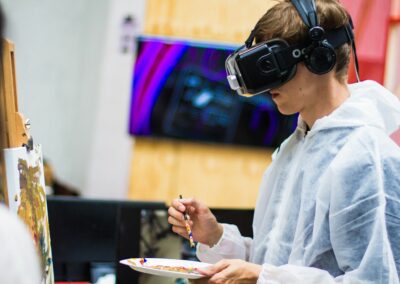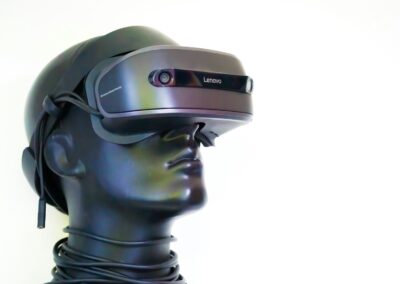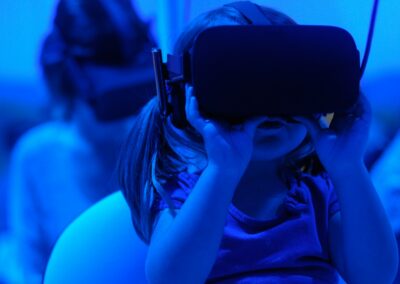Exploring the Impact of Immersive Technologies on Human Experience
The Intersection of Virtual Reality and Psychological Studies
By creating immersive,VR is not only transforming entertainment and education but also providing new insights into human perception and cognition. This is particularly significant in advanced regions like Saudi Arabia and the UAE, where cities such as Riyadh and Dubai are at the forefront of adopting cutting-edge technologies. For business executives, mid-level managers, and entrepreneurs, understanding the implications of VR on perception and cognition is crucial for leveraging these advancements in enhancing business success and leadership.
Psychological studies of virtual reality focus on how immersive experiences affect the brain and behavior. Researchers are investigating how VR can alter our sense of reality, improve cognitive functions, and even treat psychological disorders. These studies provide valuable insights into the potential applications of VR in various fields, from healthcare to corporate training. By exploring these intersections, businesses can better understand the benefits and challenges of integrating VR into their operations and strategies.
Perception in Virtual Reality: Shaping Our Sense of Reality
Altering Sensory Experiences
Virtual reality has a profound impact on our sensory experiences, fundamentally altering how we perceive the world around us. In VR environments, users can experience sights, sounds, and even physical sensations that mimic real-life experiences. This heightened sensory engagement can lead to more immersive and convincing experiences, blurring the lines between virtual and physical realities.
In technologically advanced cities like Riyadh and Dubai, VR is being used in various applications, from virtual tourism to medical training. Understanding how VR shapes sensory perception can help businesses develop more effective and engaging VR content. For example, VR simulations can be designed to train professionals in high-risk fields, such as aviation or surgery, by providing realistic and immersive practice scenarios. By leveraging the sensory-altering capabilities of VR, businesses can enhance learning outcomes and improve performance.
Influencing Cognitive Functions
Beyond sensory perception, VR also influences cognitive functions such as attention, memory, and problem-solving. Immersive VR experiences can enhance cognitive engagement, making it easier for users to focus and retain information. This has significant implications for education and training, where VR can be used to create interactive and engaging learning environments.
In regions like Saudi Arabia and the UAE, where there is a strong emphasis on innovation and education, integrating VR into educational and corporate training programs can lead to improved learning outcomes. Psychological studies have shown that VR can enhance memory retention and spatial awareness, making it an effective tool for teaching complex concepts and skills. By understanding how VR influences cognition, businesses can design more effective training programs that maximize learning and retention.
Treating Psychological Disorders
One of the most promising applications of VR in psychology is its potential for treating psychological disorders. VR therapy is being used to treat conditions such as post-traumatic stress disorder (PTSD), anxiety, and phobias. By creating controlled and immersive environments, VR allows patients to confront and manage their fears in a safe and therapeutic setting.
In Riyadh and Dubai, mental health professionals are exploring the use of VR therapy to provide innovative and effective treatments for their patients. Businesses in the healthcare sector can invest in VR technologies to enhance their therapeutic offerings, providing patients with new and effective treatment options. Understanding the psychological benefits of VR can help businesses develop and market cutting-edge mental health solutions that improve patient outcomes and well-being.
Cognition in Virtual Reality: Enhancing Learning and Problem-Solving
Improving Educational Outcomes
Virtual reality has the potential to transform education by providing immersive and interactive learning experiences. Studies have shown that VR can enhance cognitive engagement, making it easier for students to understand and retain complex information. In regions like Riyadh and Dubai, where there is a strong focus on educational innovation, integrating VR into the curriculum can lead to improved learning outcomes and better preparation for the future workforce.
Educational institutions and businesses can collaborate to develop VR-based learning programs that cover a wide range of subjects, from science and technology to history and the arts. By creating immersive educational content, businesses can help students develop critical thinking and problem-solving skills, preparing them for success in a rapidly changing world. Understanding the cognitive benefits of VR can guide the development of effective and engaging educational programs that meet the needs of diverse learners.
Enhancing Corporate Training
Corporate training programs can also benefit from the cognitive enhancements provided by VR. By creating realistic and interactive training scenarios, VR can help employees develop and practice new skills in a safe and controlled environment. This is particularly useful for high-risk professions, where hands-on experience is essential for success.
In technologically advanced cities like Riyadh and Dubai, businesses can use VR to train their employees in areas such as emergency response, customer service, and technical skills. VR training programs can provide employees with the opportunity to practice and refine their skills, leading to improved performance and productivity. By investing in VR-based training, businesses can enhance their workforce’s capabilities and stay competitive in a rapidly evolving market.
Supporting Cognitive Rehabilitation
In addition to enhancing learning and training, VR can also support cognitive rehabilitation for individuals recovering from brain injuries or neurological disorders. VR-based cognitive rehabilitation programs can help patients regain lost cognitive functions and improve their quality of life. By providing immersive and engaging exercises, VR can make rehabilitation more effective and enjoyable for patients.
Healthcare providers in Riyadh and Dubai are exploring the use of VR for cognitive rehabilitation, offering patients new and innovative treatment options. Businesses in the healthcare sector can develop VR-based rehabilitation programs to support patients’ recovery and improve their cognitive functions. Understanding the cognitive benefits of VR can help businesses create effective rehabilitation solutions that enhance patient outcomes and quality of life.
Conclusion: Embracing VR for Enhanced Perception and Cognition
Psychological studies of virtual reality are providing valuable insights into how immersive technologies affect perception and cognition. For regions like Saudi Arabia and the UAE, where technological innovation is driving significant changes, understanding these implications is crucial for leveraging VR to enhance education, training, and healthcare. By exploring the sensory and cognitive benefits of VR, businesses can develop innovative solutions that improve learning outcomes, support mental health, and enhance overall well-being. Embracing VR technology with a focus on ethical considerations and user experience is key to creating a sustainable and successful future in a digital world.
—
#VirtualReality #PsychologicalStudies #PerceptionAndCognition #ModernTechnology #AIPsychology #BusinessSuccess #LeadershipSkills #UAETechnology #SaudiArabiaTechnology #RiyadhTech #DubaiTech


